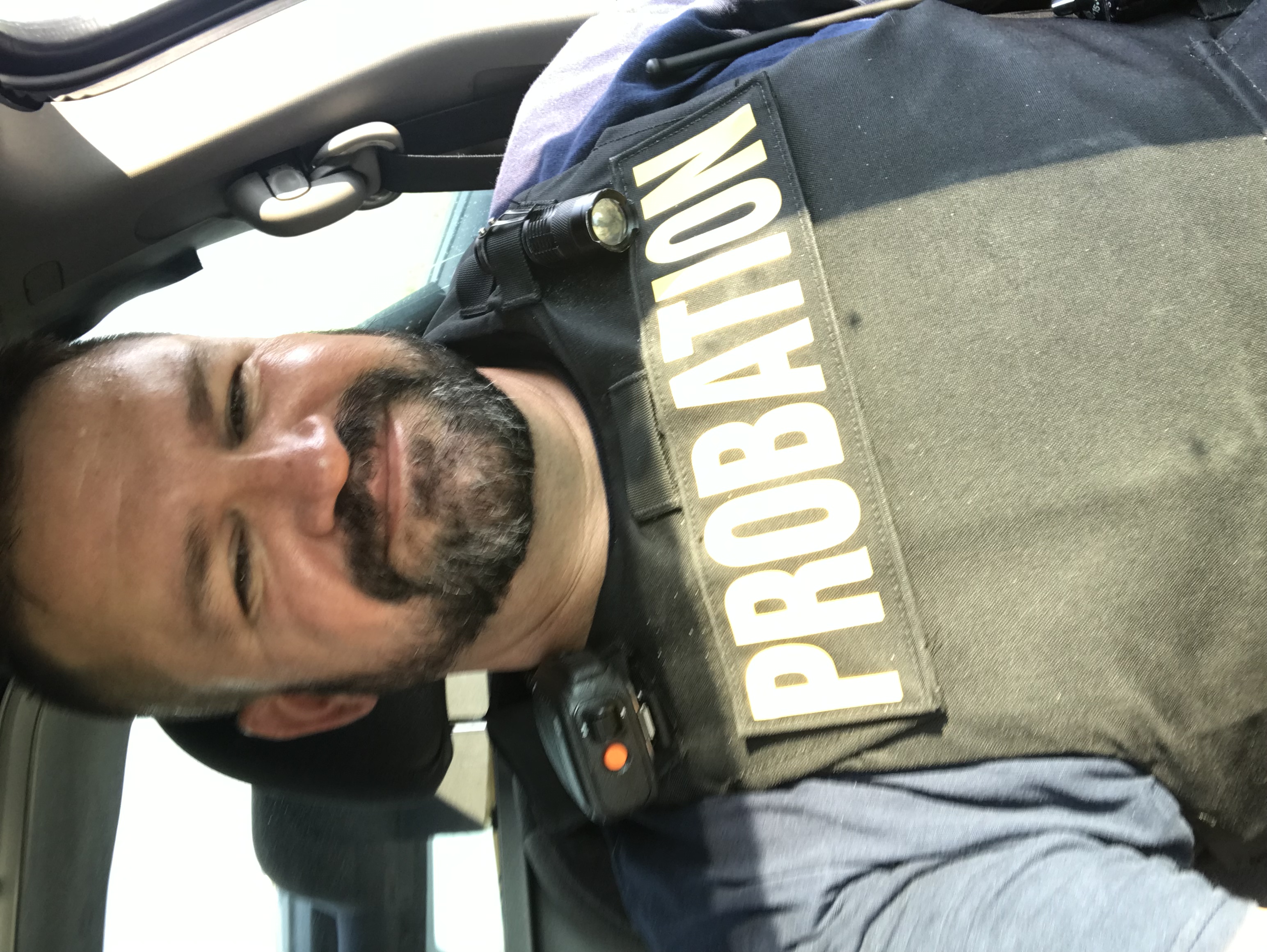On the Job: Bill Van Buskirk
AFSCME Local 799, Madison County Probation Officer
 Tell us about your job as a probation officer.
Tell us about your job as a probation officer.
I have a domestic violence caseload of about 80 cases. I monitor their progress through domestic violence classes and try to help get them back on track with their lives. Often, they don’t know where to begin, they don’t know what to do. So, you help them get an ID, for instance, or look for a job. Throughout the interviews, if you find out they have drug or alcohol issues, you get them into substance abuse treatment.
We also get the high-risk cases of all the adult offenders—they might get a case for simple battery, yet they have a history of drug abuse, which puts them at high risk for reoffending. And we monitor the juveniles who are on house arrest after being released from detention.
How does your job provide a valuable public service?
We monitor the behavior of people on probation. If you help some of these people find jobs, make their own money, get them off drugs, you can help them stop what they were doing before and prevent them from reoffending. And if you can get people to seek drug treatment and stop doing drugs, for example, you’re saving their life.
When it comes to domestic violence cases, if they get DV treatment and figure out how to deal with their emotions, then they don’t beat on their wives or girlfriends. Without help, that behavior escalates, it gets worse and worse, and they could kill someone. I am part of them getting to stop the cycle of violence.
What’s your favorite part of the job?
On the casework side, my favorite part of the job is knowing that I helped someone out and got them back on track, helped them get their lives straightened out.
Unfortunately, I also see a lot of negative in my job. Every case you get, this person committed a crime. And you have ‘frequent flyers’ who reoffend. But what keeps me going is that I have good co-workers. When you see so much negative stuff, working with good people helps a lot. I’ve made some really good friends working here the last 23 years. We all came up together and now we all work in the probation department together.
We’re pretty close to 100% union at our local. And for the last several years we’ve had really good leaders. Our president, Cathi Gitchoff, passed away. She is missed.
What’s your inspiration to go to work every day?
I’ve been doing this work for 24 years. Seeing people that I helped in the past and having them say, ‘Hey, you were my PO, thanks for everything you did.’ That makes you feel good, knowing that you did help somebody.
The majority of my caseload have underlying mental health, drug and alcohol issues that were never dealt with. Those need to be dealt with in order to get better. And once they do—when they realize where they messed up and start fixing the mistakes they made—it improves their lives. And it’s not just the person on probation. In turn, their work helps their girlfriend, their wife, their husband, their kids. It improves all their lives. That’s inspiring to me.
What have you learned from your work as a probation officer?
The people I talk to have had the deck stacked against them. And in fact, generation after generation of the deck stacked against them. I don’t see the stuff they did firsthand; I see it after the police and courts have done their thing. I read it in reports. But it’s by interviewing the person that I figure out what kind of person they really are and how I can help them.
This work makes you grateful for what you have. I can go home and talk and laugh with my wife and kids. I had good parents that raised me right. My wife’s a teacher. She talks about her issues in her class, and I talk about issues at my work. When the kids ask, ‘How was your day, dad?’ I talk to them about it and explain that people make mistakes. I think our kids have learned right from wrong and to want to help people.
How does your union improve your workplace?
The union fights for the rights of the workers. The union fought for my family insurance, fought for our wages, our ability to take vacation and spend time with our families. That’s all because of the union.